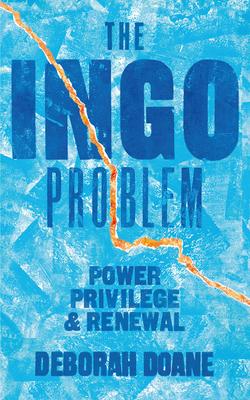International non-governmental organisations (INGOs) have emerged over the past few decades as the dominant institution in the civil society ecosystem, garnering a disproportionate amount of both resources and power in the international arena. Local actors continue to be marginalised and largely excluded from decision-making. Many often act as little more than sub-contractors to the INGO sector or face direct competition as INGOs have sought to set up their own 'local' organisations. But this dominant position is under threat. INGOs are now on the precipice of decline, having to face up to a series of challenges in recent years: from sexual exploitation scandals, to accusations of white-saviourism, resulting in ever-louder demands to 'decolonize' and shift power and resources more directly to local actors. In some cases, funders are now heeding these demands, turning away from INGOs altogether. 'The INGO Problem' explores these challenges, drawing from the personal experience of the author, and delves into the stories of leaders across all sectors of global civil society. It builds on the work of the RINGO Project, a systems-change endeavour to "Reimagine the INGO" and its relationships with local civil society organisations. The project explores difficult issues around race and power, and offers ideas for new systems of accountability, risk, funding, governance and more.

International non-governmental organisations (INGOs) have emerged over the past few decades as the dominant institution in the civil society ecosystem, garnering a disproportionate amount of both resources and power in the international arena. Local actors continue to be marginalised and largely excluded from decision-making. Many often act as little more than sub-contractors to the INGO sector or face direct competition as INGOs have sought to set up their own 'local' organisations. But this dominant position is under threat. INGOs are now on the precipice of decline, having to face up to a series of challenges in recent years: from sexual exploitation scandals, to accusations of white-saviourism, resulting in ever-louder demands to 'decolonize' and shift power and resources more directly to local actors. In some cases, funders are now heeding these demands, turning away from INGOs altogether. 'The INGO Problem' explores these challenges, drawing from the personal experience of the author, and delves into the stories of leaders across all sectors of global civil society. It builds on the work of the RINGO Project, a systems-change endeavour to "Reimagine the INGO" and its relationships with local civil society organisations. The project explores difficult issues around race and power, and offers ideas for new systems of accountability, risk, funding, governance and more.